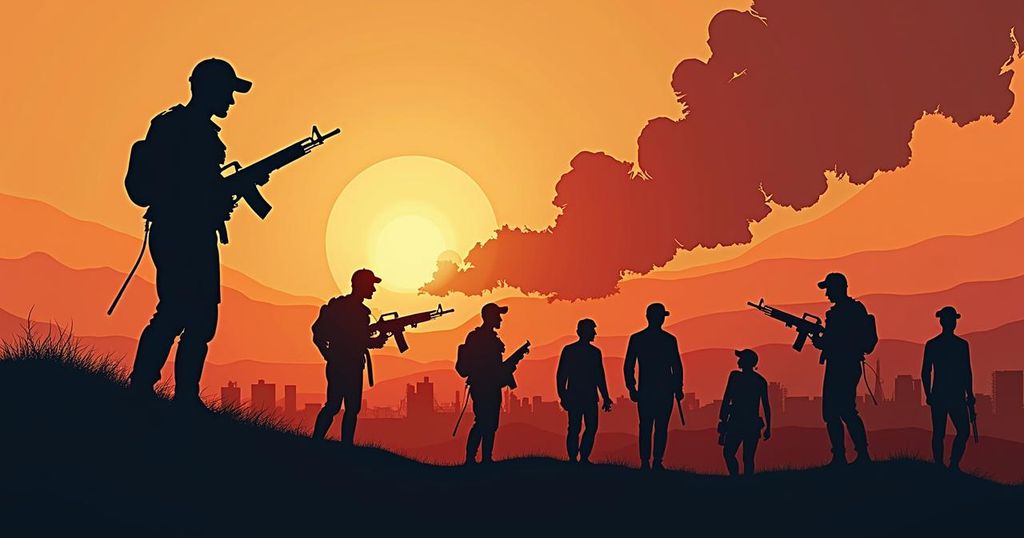The ongoing conflicts in Lebanon, the Occupied Palestinian Territory, Syria, Haiti, Ukraine, and Eastern Africa have led to severe humanitarian crises, resulting in significant civilian casualties, displacement, and health system breakdowns. Recent reports indicate that over 1 million people are affected in Lebanon, with urgent appeal calls by the UN for international assistance. The situation in Gaza faces severe health facility shortages; while in Haiti, gang violence has displaced over 700,000 individuals. Syria faces further violence with significant disruptions to humanitarian efforts, and Ukraine continues to experience civilian casualties amidst ongoing attacks. Eastern Africa suffers from a dire humanitarian situation, necessitating urgent funding and assistance.
The ongoing crises across various regions have escalated significantly, impacting civilians and humanitarian efforts. In Lebanon, continuous conflicts have resulted in over 1,700 fatalities since October 2023, with approximately 1 million individuals affected by the violence, compounding already dire humanitarian conditions. Significant displacement is evident, with around 346,000 people reported to have fled their homes, many seeking refuge in overcrowded shelters. Health infrastructure is severely compromised, with numerous hospitals and health centers closed due to ongoing strikes and road damages. The UN has initiated a Flash Appeal to garner urgent assistance, and the humanitarian efforts remain crucial with entities like the World Food Programme and WHO stepping up support. In the Occupied Palestinian Territory, violence persists with civilian casualties on both sides following attacks. Reports confirm the death of seven individuals in Jaffa due to actions linked to individuals from the West Bank, further exacerbating tensions. OCHA emphasizes the protection of civilians as international law mandates accountability in the use of force. In Gaza, humanitarian organizations are preparing for a polio vaccination campaign amidst alarming health facility shortages due to restricted access to supplies. Emergency medical teams are active, although many health facilities struggle to maintain operations due to ongoing attacks and fuel rationing. Syria remains embroiled in conflict, with airstrikes resulting in civilian deaths, further complicating the humanitarian response as aid efforts face severe disruptions. The UN calls for respect for international humanitarian laws to minimize civilian harm. In Haiti, gang violence has led to an alarming rise in internal displacement, affecting over 700,000 individuals, with many children among those displaced. Humanitarian efforts are ongoing to support displaced populations, yet funding remains critically low, with only 39 percent of necessary financial support secured. Ukraine is also facing a grave humanitarian situation, highlighted by recent attacks that have severely impacted civilians in both Kherson City and Zaporizhzhia, necessitating international aid and rapid response to support affected populations. Eastern Africa suffers from severe humanitarian need, compounded by conflict, climate change, and disease outbreaks, affecting a significant portion of the population. The region requires substantial funding to address these escalating crises, with only 38 percent of the necessary responses being adequately supported financially. Collectively, these situations underscore an immediate need for international humanitarian support, adherence to international law, and enhanced efforts to protect and assist vulnerable populations across these conflict-affected regions.
The humanitarian crises reported across the globe highlight the urgent need for international attention and intervention. With conflicts simmering in regions such as Lebanon, Israel, the Occupied Palestinian Territory, Syria, Haiti, Ukraine, and Eastern Africa, millions of civilians are suffering from violence, displacement, and lack of access to basic humanitarian assistance. The United Nations and affiliated organizations like OCHA (Office for the Coordination of Humanitarian Affairs) are operating under immense pressure to respond effectively. The impact of systemic issues such as climate change, armed conflict, and political instability magnifies the challenges faced by these regions, making comprehensive humanitarian responses vital yet increasingly difficult.
It is imperative that the international community responds swiftly and effectively to the escalating humanitarian needs across these conflict regions. Multiple parties must adhere to international laws to protect civilians and provide the necessary aid to mitigate suffering. As humanitarian appeals are launched and partnerships formed, securing funding and resources is vital for effective intervention. The crises across Lebanon, Israel, Palestine, Syria, Haiti, Ukraine, and Eastern Africa serve as a stark reminder of the urgent and ongoing need for solidarity and action in the face of widespread humanitarian challenges.
Original Source: www.unocha.org






